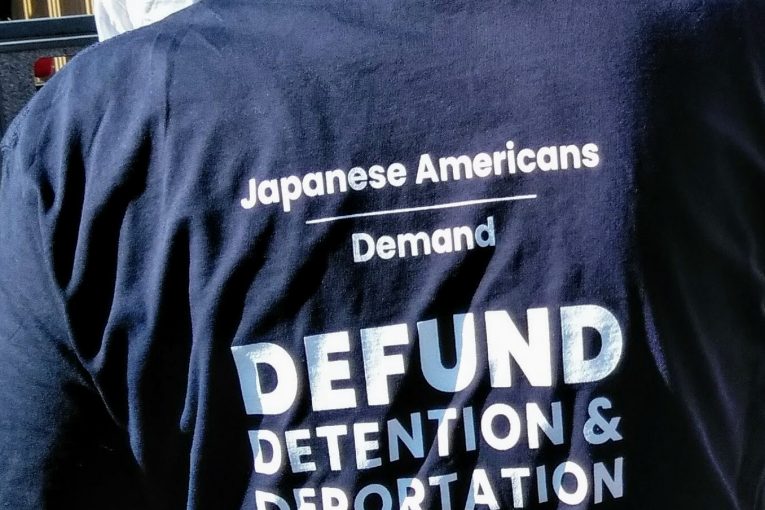
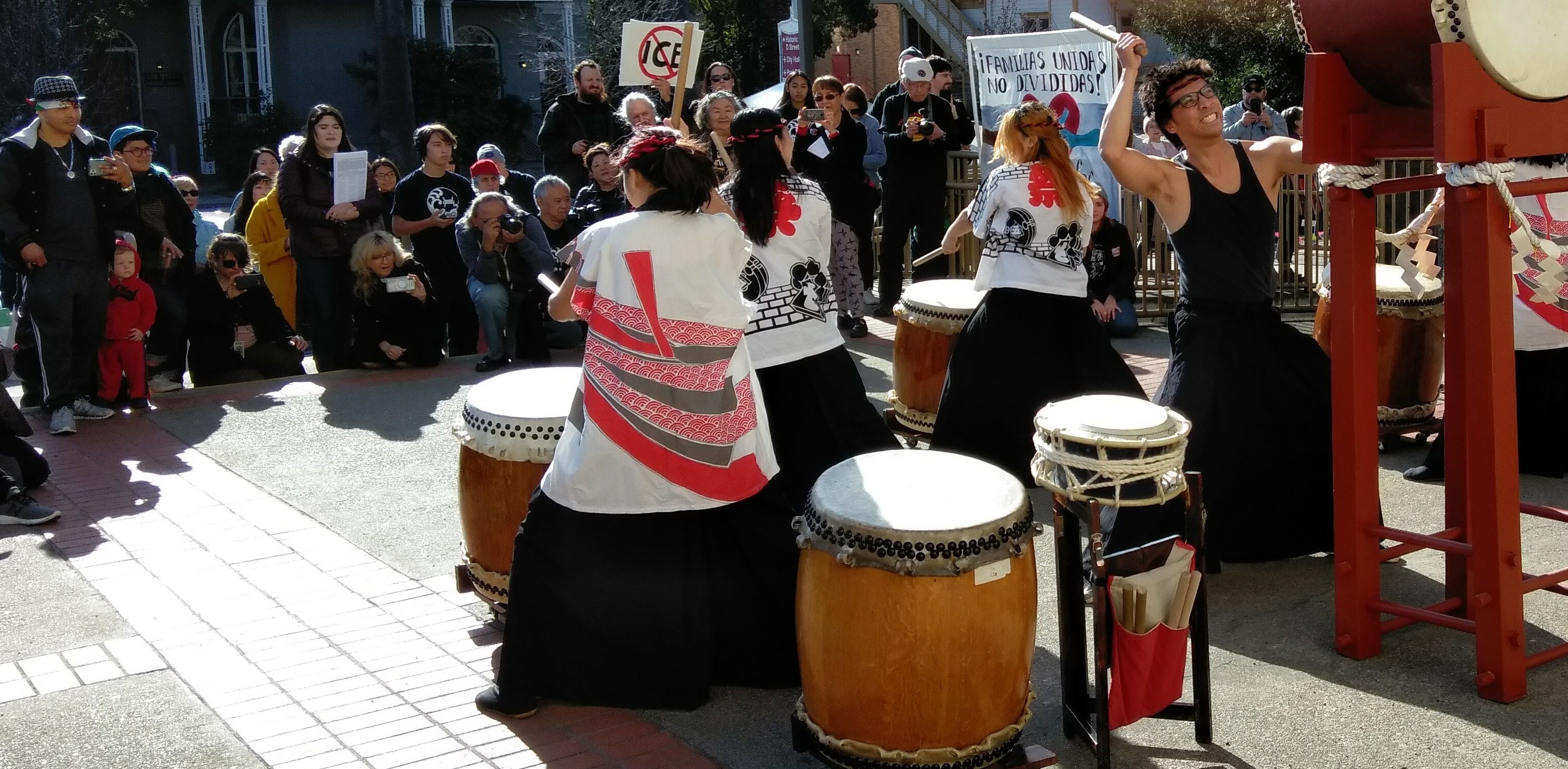
By Crescenzo Vellucci
Vanguard Sacramento Bureau
MARYSVILLE – If the rally in Marysville last Saturday opposing immigrant and refugee camps – a loud peaceful event attended by nearly 200 people – is any indication, a “National Pilgrimage to Close the Camps” in D.C. in June will be a protest of major and historic proportions.
The June action will see 125,000 paper cranes, or Tsuru as expressions of solidarity with the immigrant communities today – the represent Japanese Americans rounded up and incarcerated in U.S. concentration camps during World War II. Tsuru for Solidarity is leading the planning for the national action.
Although many immigrant rights groups from Northern California were represented at the Yuba County Jail Saturday – where there are about 180 detainees being held for ICE for deportation – the focus was on the concentration camps that held Japanese Americans during World War II.
The January 11 action drew so many to the jail that the streets around the facility were blocked off. It was organized by Northern California organizations. Tsuru for Solidarity – a nonviolent, direct action project of Japanese American social justice advocates working to end detention sites and support front-line immigrant and refugee communities – led the planning.
To those who were held in those camps, and their descendants, the ICE camps are all too familiar.
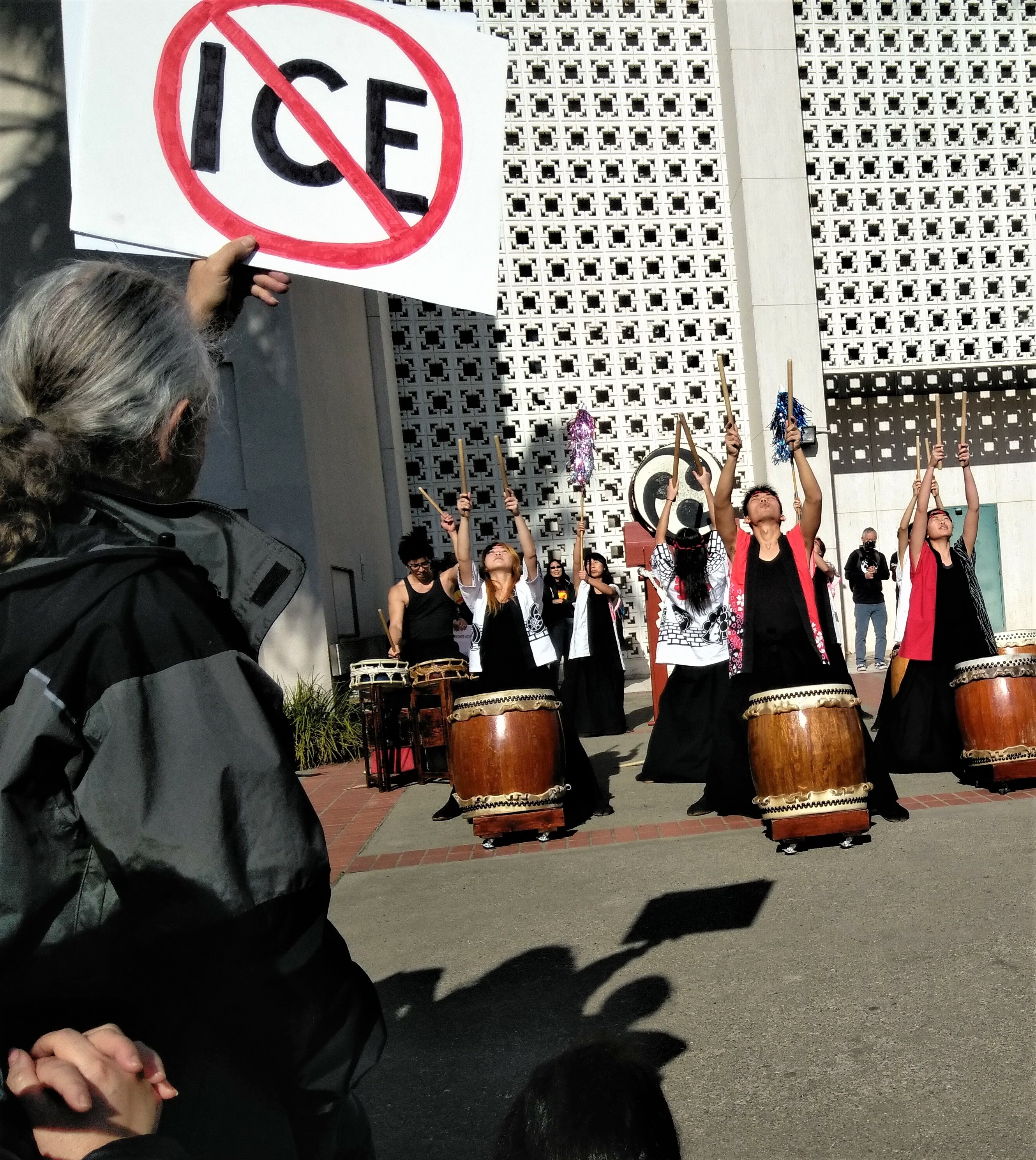
Saturday’s event organizer Josh Kaizuka of Florin JACL (Japanese American Citizens League) sees what happened in the 1940s as similar to today’s migrant detention camps because “What is the same is the racism, fear mongering, and failure of political leadership which is caging children and families.”
“Japanese American survivors and descendants of U.S. concentration camps know that imprisoning parents and children causes deep harm that is passed down from generation to generation. We refuse to stand by and let the pain that our community suffered be inflicted on others,” Kaizuka added.
“We experienced the same injustice, but no one stood up for us,” said Christine Umeda, 81, of Sacramento. When she was four, Umeda and her family were put in a prison camp as part of the U.S. incarceration Japanese Americans during World War II.
For Japanese Americans, Oshogatsu, the New Year, is a time for reflection, renewal and for making things right with our neighbors. In this spirit of “Cleaning House,” the protest sought to end Yuba County’s contract allowing ICE to use the Yuba County Jail for immigrant detention, and also to end the inhumane conditions at the jail that have sparked multiple hunger strikes and suicide  attempts by people held in the jail.
attempts by people held in the jail.
“It could have been my parents” in Yuba County Jail, said Cristobal Jaime Buzo. His parents are immigrants from Mexico. They were undocumented, but later got legal papers. Buzo lives in nearby Wheatland and attends community college in Sacramento. He is part of Estamos Unidos (“We Are United”), a local group of students and teachers opposing ICE detention.
Organizers also noted ICE’s Christmas Day transfer of Lexis Avilez, a transgender woman, who, without warning or a chance to call her attorney, was transferred from Yuba County Jail to a remote location in Texas.
Japanese American former child incarcerees spoke Saturday in addition to representatives from groups including Estamos Unidos; Centro del Pueblo-Humboldt; Interfaith Movement for Human Integrity; Campaign for Immigrant Detention Reform; Jewish Action, NorCal; Council on American Islamic Relations, Sacramento Valley; Asian Prisoner Support; and Labor Council for Latin American Advancement, Sacramento AFL-CIO.
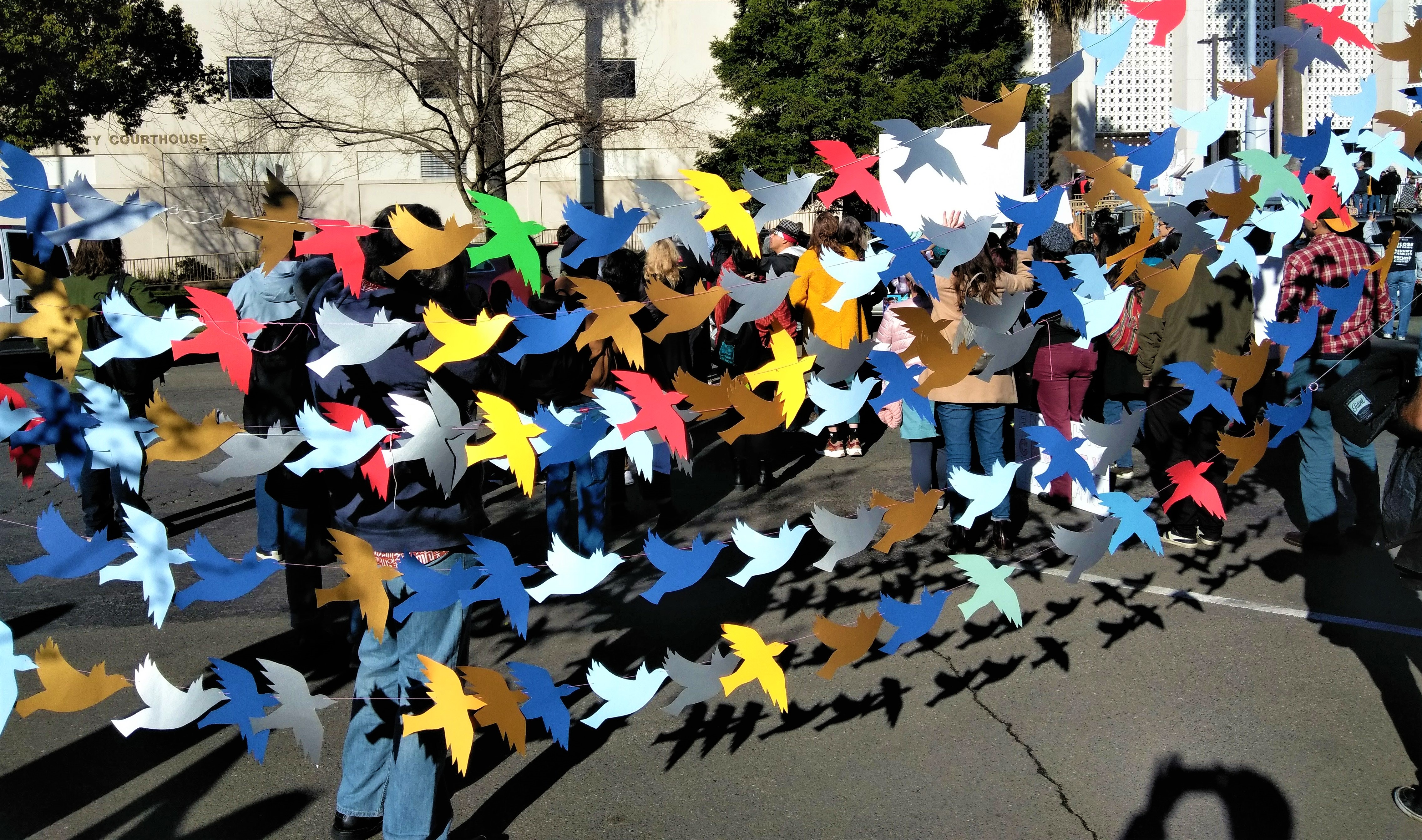
One speaker, Rev. Deborah Lee, Executive Director of Interfaith Movement for Human Integrity sees ICE detention of immigrants as “a modern form of slavery and the commodification of human life. I have seen the devastation to families and children.” From April 2011 through September 2018, her group organized monthly vigils at the ICE detention center in Richmond, CA before it ended its contract with ICE.
Yuba County pockets about $5 million a year for housing ICE detainees. And conditions have been described as inhumane for years.
“Immigration detention has become one of the most egregious forms of mass incarceration in the United States. Over 440,000 immigrants are detained in this country each year, far more than anywhere else in the world,” said Rhonda Rios Kravitz, of CIDR (Campaign for Immigration Detention Reform).
“We cannot stand idly by and watch in silence as unjust immigration laws damage our communities and our nation. It is imperative that we eliminate mass deportations, which obstruct the development of children, destroy families, and further jeopardize vulnerable populations, The crisis surrounding our country’s immigration system has reached a breaking point and now, more than ever, we need to stand together and make our voices heard,” she said.
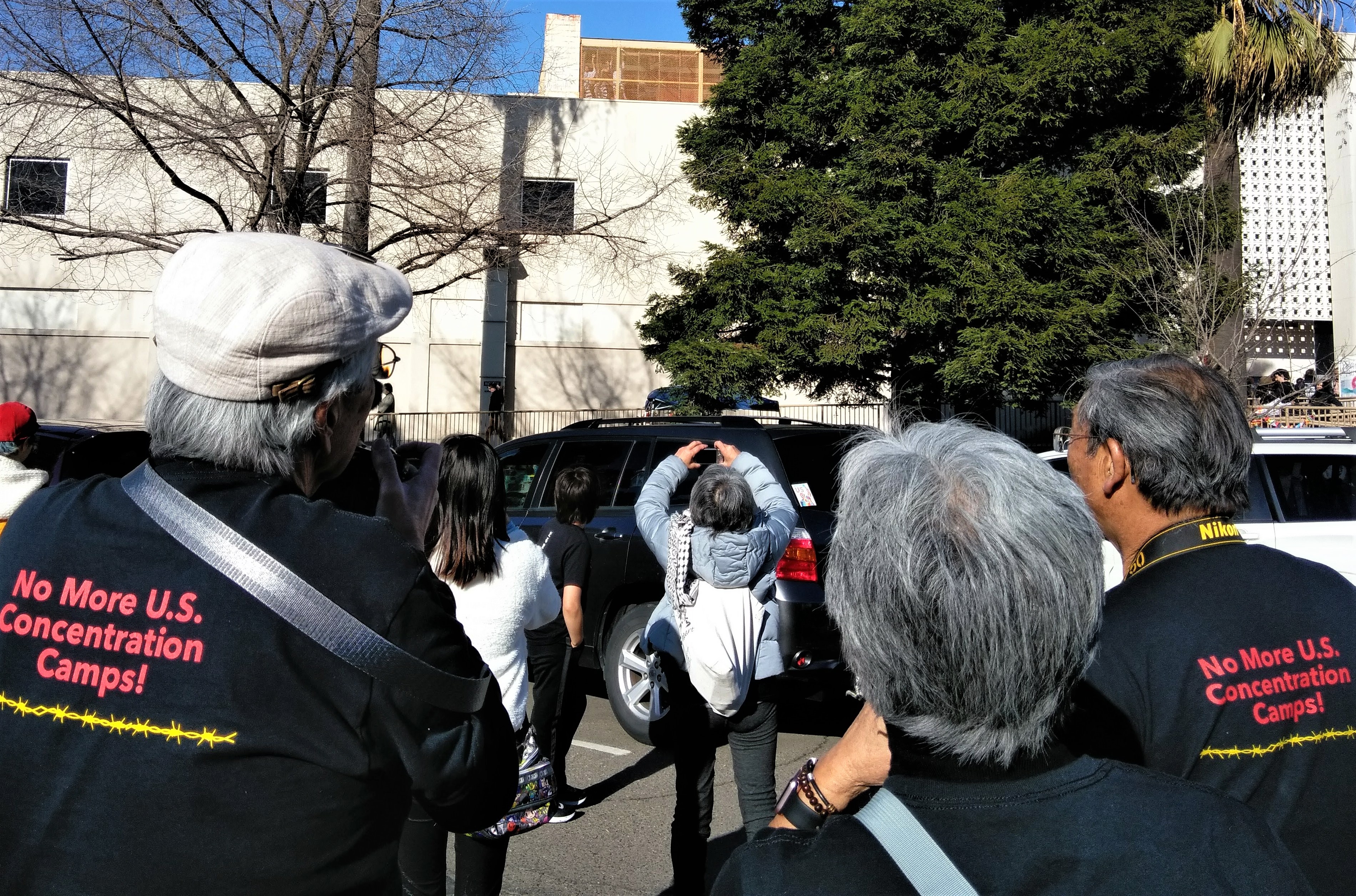
“Whether they are immigrants detained in our jails or detention centers, fathers and mothers trying to provide better lives for their families, or young children escaping violence and persecution in their homelands, we need our government to act with compassion and treat those coming to our country with dignity and respect. We need people to stand and voice their dissent,” said Rios Kravitz.
“We have an infestation of cockroaches in our beds and food; the cells have no water and we’re treated like criminals,” wrote one migrant detainee in a letter secreted out of the Yuba County facility during one of several hunger strikes held in 2019. Others on strike a few months ago complained of lack of visitation, difficulty in speaking with legal help and not being allowed, as required, more time out of their cells.
There has been a reported 42 suicide attempts at the jail – the last one in May of 2019.
“This jail has been under a court order for 40 years to improve conditions; however, conditions are still horrific. Ongoing inspections by ICE and the Yuba County Grand Jury (did) not adequately identify the pervasive and troubling conditions at this facility,” added Rios Kravitz.





